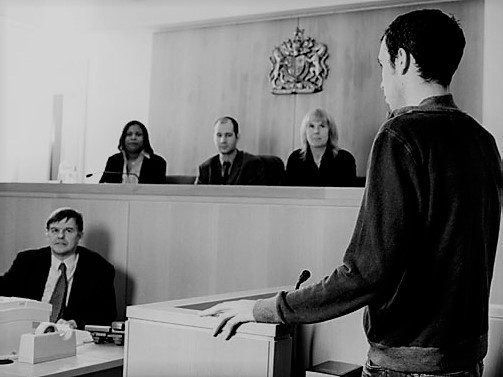By
Hazel Speed
Last week saw the life convictions of two teenagers for murder, who at the time of their crime were considered to be minors thereby cannot legally be named as an adult might be.
It is ironic that once, young children would have the option of leaving school and be working at the age some others have committed murder!
What is wrong with the legal system that protects naming the legally convicted of murder in this way, yet the victims can be named, and perhaps relatives and friends interviewed (and many do want to speak however, which is their right, as long as they do not refer to the convicted culprits).
Those bereaved are offered opportunities to give an ‘Impact Statement’ within the Court Hearing, telling those present how their loss has devastated them and that their lives will never be the same again.
There is a saying ‘If a person cannot do the time then they shouldn’t do the crime’, and also the paraphrase that ‘If they can do the crime, then they are old enough to do the time’. The former expression usually related to a slightly different context and was for an adult age-group to be told in the main, albeit not exclusively.
If under-age teenagers can murder in cold blood, premeditated, and in many cases via cruel and sadistic ways, then if they have been proven old enough to have done so, are they not old enough to be named, after all they will be locked up for many years but ‘may’ be released one day with new identities unless their names are never known, though that is doubtful.
Minimum sentences of 20 years each were given to the above minors. Some ask, should that not be 20 years for each person they murdered?
So the tax payer, could, in theory one day subsidise their new identities, which most likely provides them with homes and also pay for them to be watched from a distance.
How many law-abiding people would like a free home with their own security system of sorts, especially when they rarely see a local policeman walking the streets to protect them against crime in the first place, though it is understood that sadly, not all crimes are preventable, no matter how many police patrol the streets.
The families of those convicted (especially murderers), would also suffer if they were to be named and most likely have to leave the area where they lived. Even if they remain anonymous, this terrible crime will no doubt have an effect one way or another on them also. To think their children were capable of becoming convicted murderers, taking away the lives (in this case) of an innocent Mother and Daughter whilst they slept in their beds, in their own home.
What of any extended family and friends of the Mother and Daughter who died. What do they get by way of help in practical, emotional, and psychological terms?
In contradiction to the above legal stance, regarding the rule that names minors who are convicted of crimes and cannot be referred to (and no doubt that also applies to ‘helping Police with their enquiries’ and/or arrest stages), we see the opposite side of the coin.
Once over I seem to recall (but may be mistaken) that names were always withheld when it came to adults helping the police with their enquiries, arrested and charged, if or until convicted in Court. These issues are subject to changes via various Legislations over decades of course.
We have all seen television coverage where blankets are/were over the heads of suspects as they are taken into custody or back and forth to court. This has been either to enable anyone subsequently proved innocent to be able to return to their usual way of life without any of the above dire consequences to them and/or their families and friends,
Then there have been those whose names were released but their faces were obscured to the public and press photographers – a type of half-way situation which still makes them vulnerable to investigators representing different interested parties and/or the media.
Another point could be their appearance is already known but they cannot cope with facing hostile mobs and photographers who want tomorrow’s newspaper headlines and photographs.
For any adult who is truly innocent of an accusation of any kind, irrespective of the nature of the offence, it must break a person, as they are probably named in the media and there will be trial by the ‘unknown’ about the ‘unknown’ even before a Court case.
In more modern times, various celebrities have been interviewed and named – and matters have even gone beyond that stage only to learn that there are either no charges after all, or that there is insufficient evidence against them.
Others, after a court case, were convicted and sentenced. Some accused have died before they could be judged guilty or acquitted.
I am not going to relate the certain story examples herein as we mostly all know about the issues which have been made available within the public domain.
Surely Parliament needs to look at all these legal anomalies again as the two sets of examples herein are at odds with each other in respect of age and crime, naming or not naming people in particular, in all these differing sets of circumstances.
After all, wrong-doing (especially of such evil and cruel nature, taking lives) is not restricted to any age group, so why should the consequences thereof be either – and if any allowances should be made in respect thereto should it not be down to the victims (if they survive) and/or their relatives to discuss with the Judge privately.
Just a thought.
Hazel Speed
Photo (c) Hazel Speed – used by kind permision to Tuck Magazine



No Comments Yet!
You can be first to comment this post!